| Departing Durango
|
|
After a second night at the Doubletree, we had breakfast, packed up, and were
ready to embark towards the Million Dollar Highway,
which weaves through the Rocky Mountains north of here.
The origin of the name isn't clear, but one
suggestion is that a vital section of
it cost a million dollars to build back in the 1920s.
Today this entire stretch is known as the San Juan Scenic Byway
of US Highway 550.
| Time | Event | Range Remaining |
|---|
| 9:08 am | Departed Durango | 240 |
| 10:08 am | Arrived Molas Pass | 168 |
Range/Distance ratio: 1.67
Conditions: Uphill, 66°F
|

|
The route there was very scenic.
Except for passing zones, it was a two-lane road, without guardrails, winding
through
forests covering the landscape leading to jagged mountain ridges and other
enormous rock formations on either side.
|
| Molas Pass
|
We arrived at Molas Pass, a 10899-foot elevation rest stop with panoramic views of
Molas Lake, Animas River, Sultan Mountain, and Grand Turk.
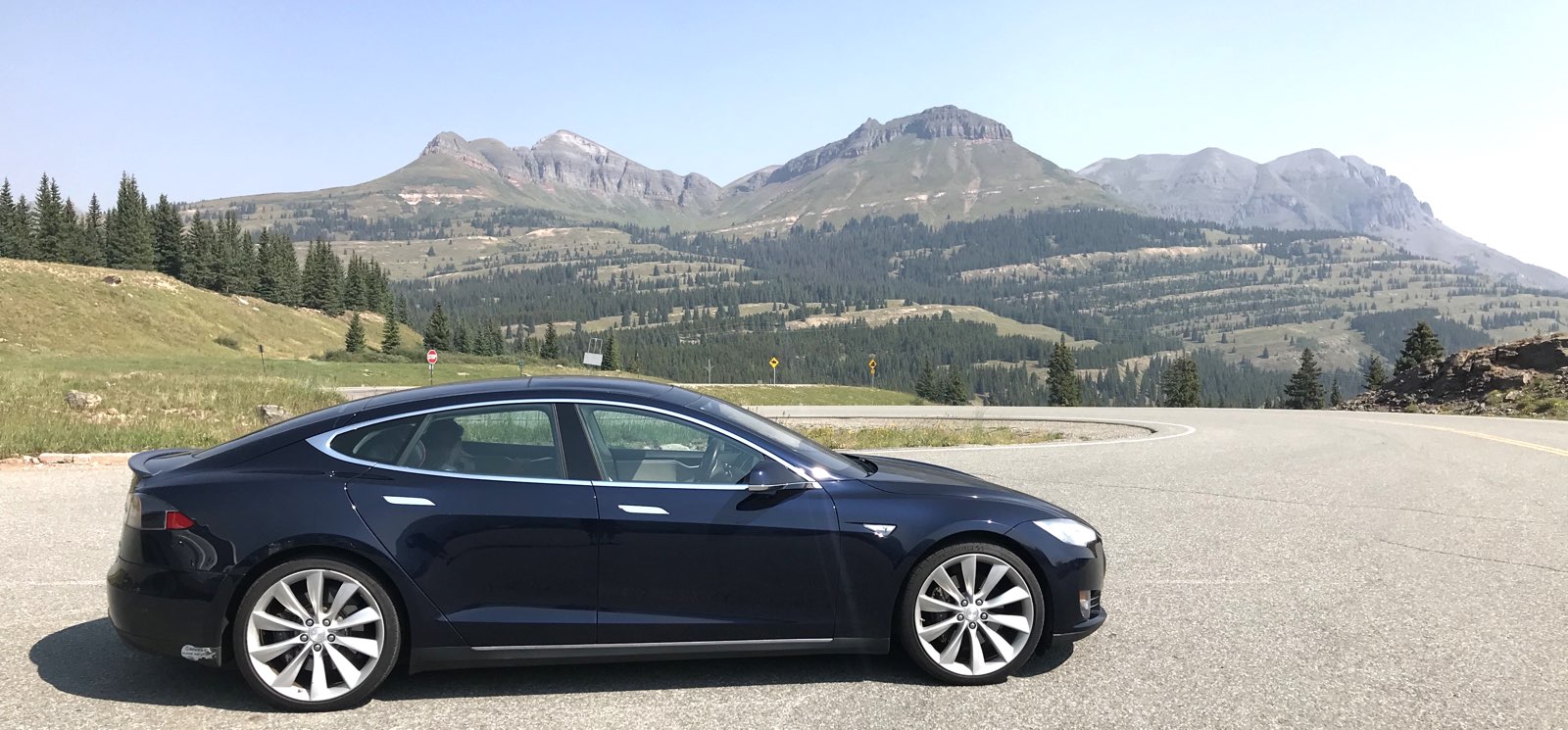
|
| Silverton
|
| Time | Event | Range Remaining |
|---|
| 10:19 am | Arrive Silverton | 170 |
Range/Distance ratio: -0.28
Conditions: Downhill
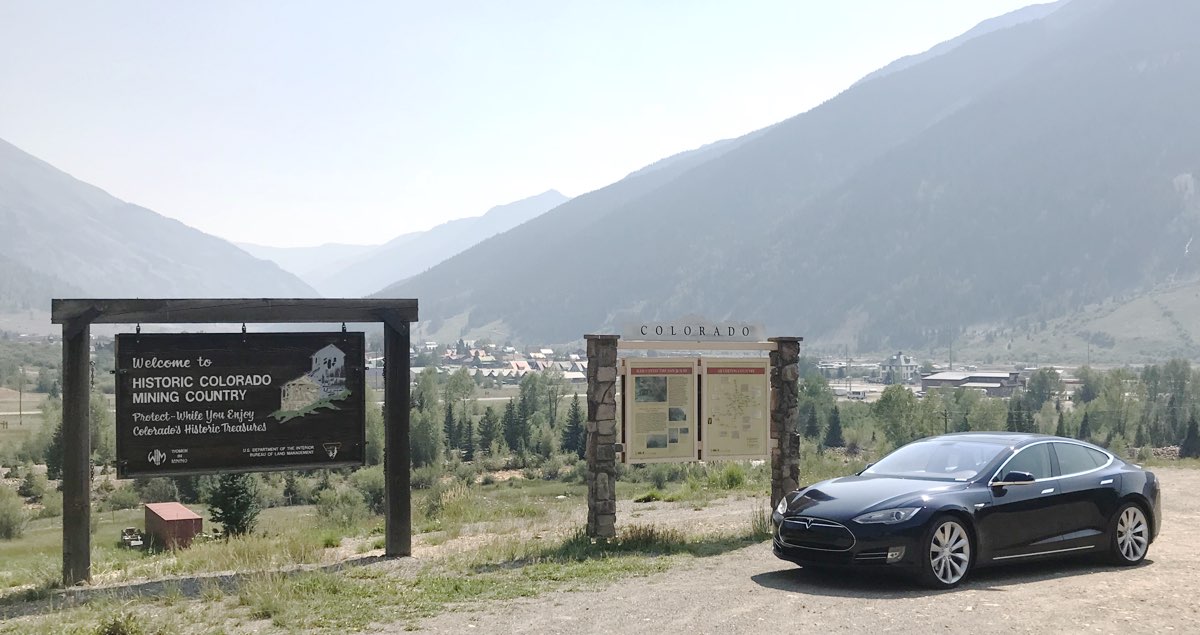
|
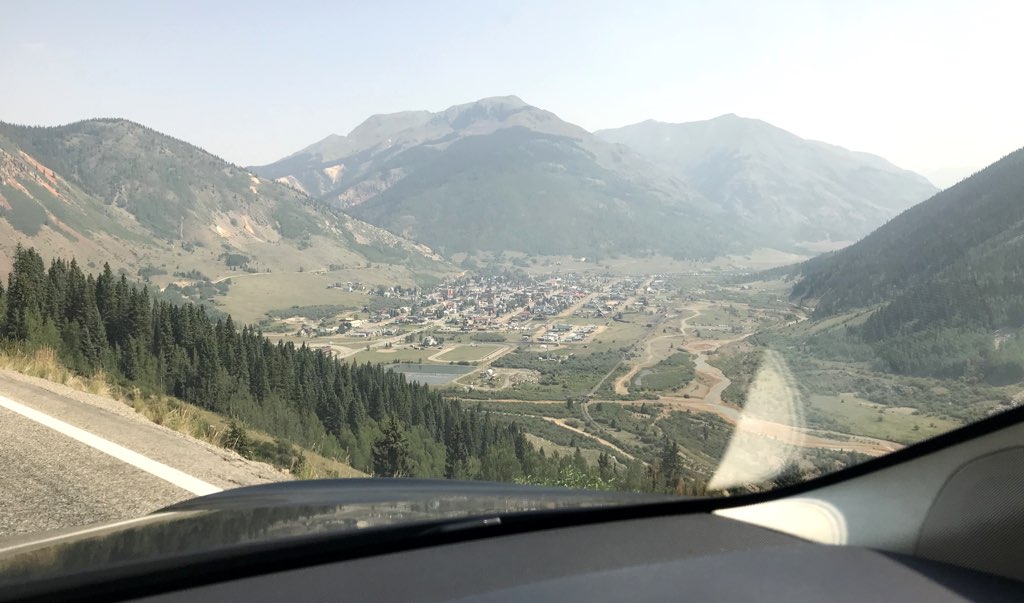
Soon after we arrived in Historic Colorado Mining Country, starting with Silverton,
the destination of the train ride we couldn't take yesterday.
|
|
We stopped by the Silverton Visitor's Center to take a bathroom break,
look at the exhibits, and pick up some brochures.
|

|
|
From Silverton, the highway became even more breathtaking
with the contrast of the lush greenery against
the colors in the rocks
set against the rugged
mountain ranges.
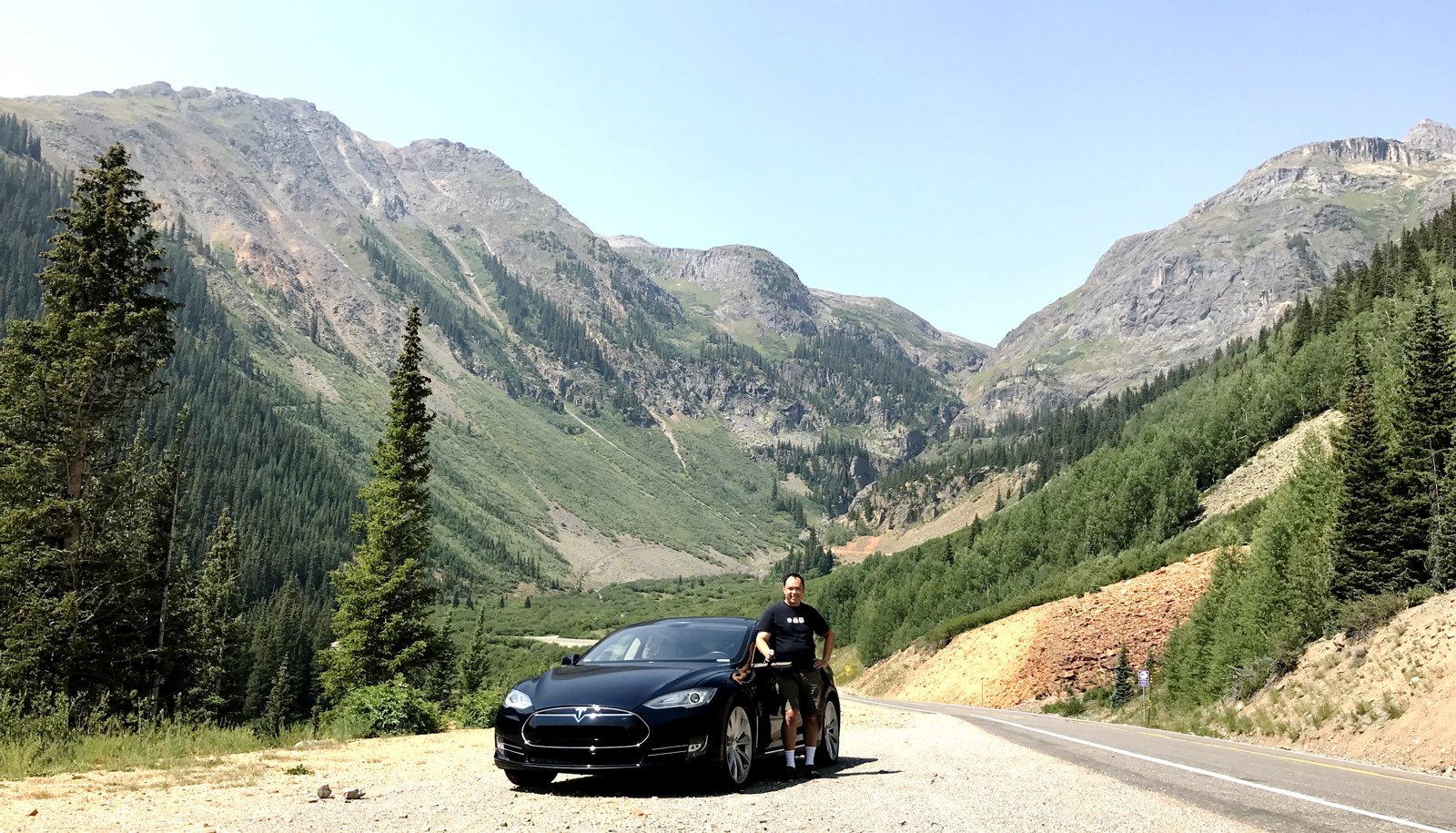
Mill Creek
|
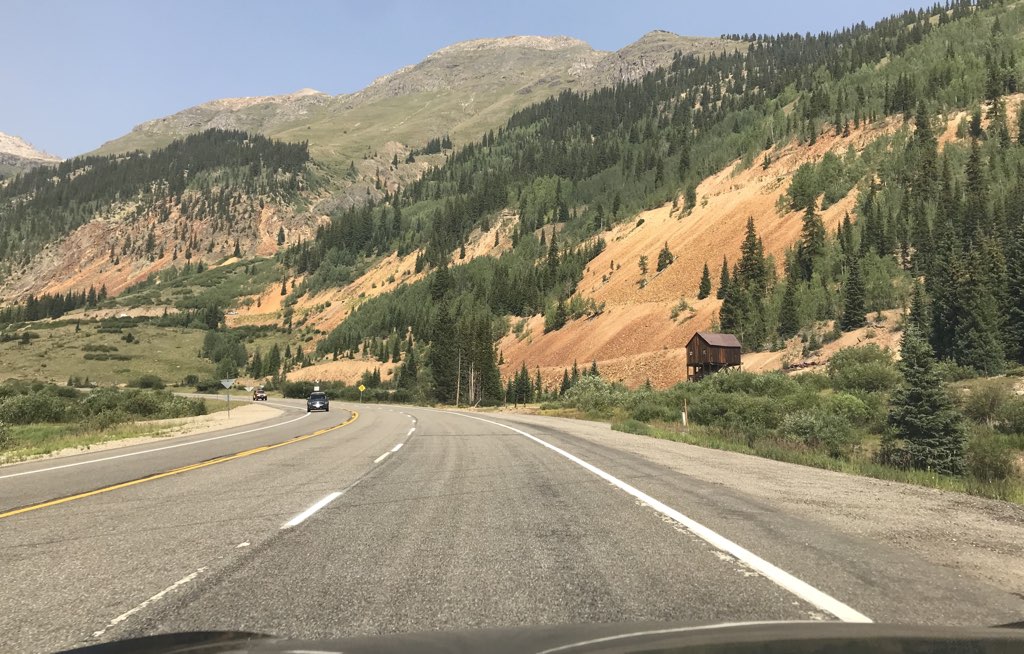
Artist's Cabin
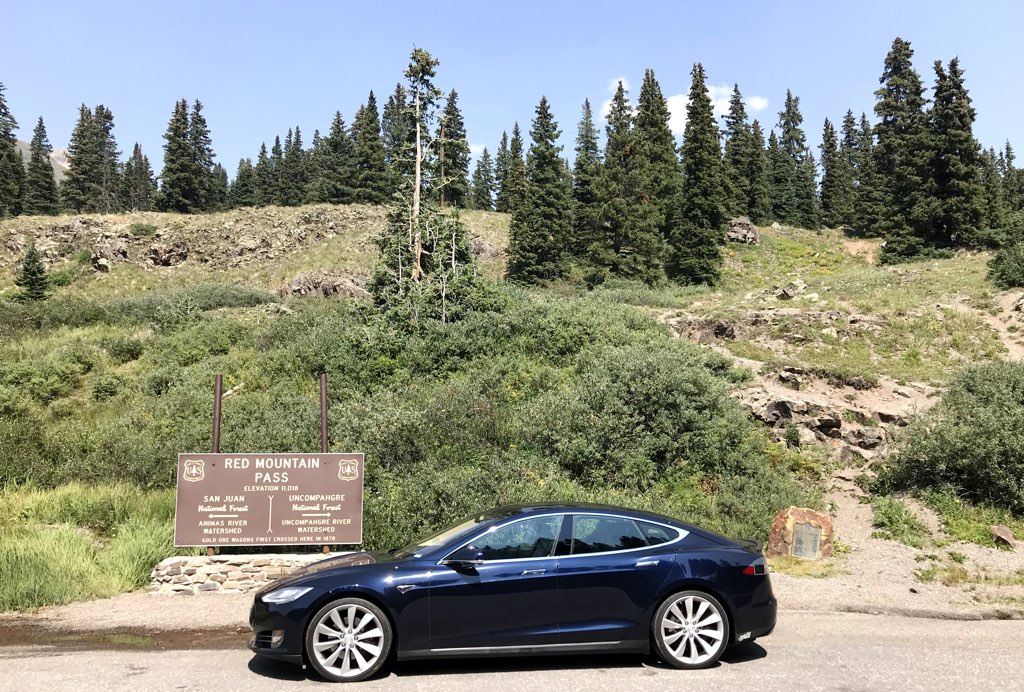
Red Mountain Pass at 11,018-foot elevation
|
Then we reached a viewpoint of both the Red Mountains and
Idarado Mine.
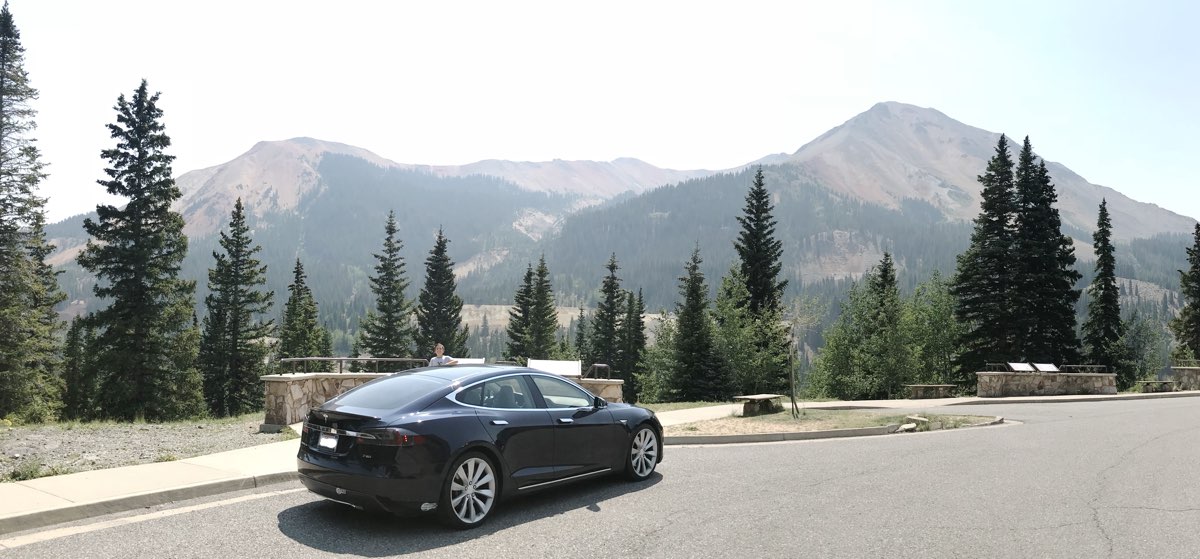
|
| Ouray
|
We continued northward admiring the landscape, then came upon Ouray, the "Switzerland of America".

| Time | Event | Range Remaining |
|---|
| 11:02 am | Depart Silverton | 170 |
| 12:12 pm | Arrive Ouray | 154 |
Range/Distance ratio: 0.667
Conditions: Winding mountain roads, some construction
We stopped for lunch in Ouray, then took a short drive to Box Canyon to see and hear the falls and take pictures.
After some coaxing of the children,
we then hiked up to the upper bridge over the falls
for spectacular views of the town and surrounding mountains.
|
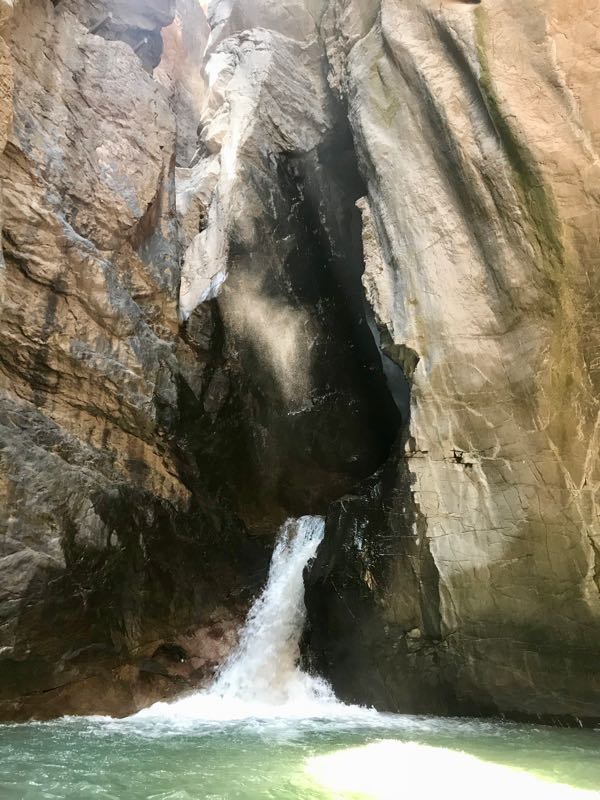
|
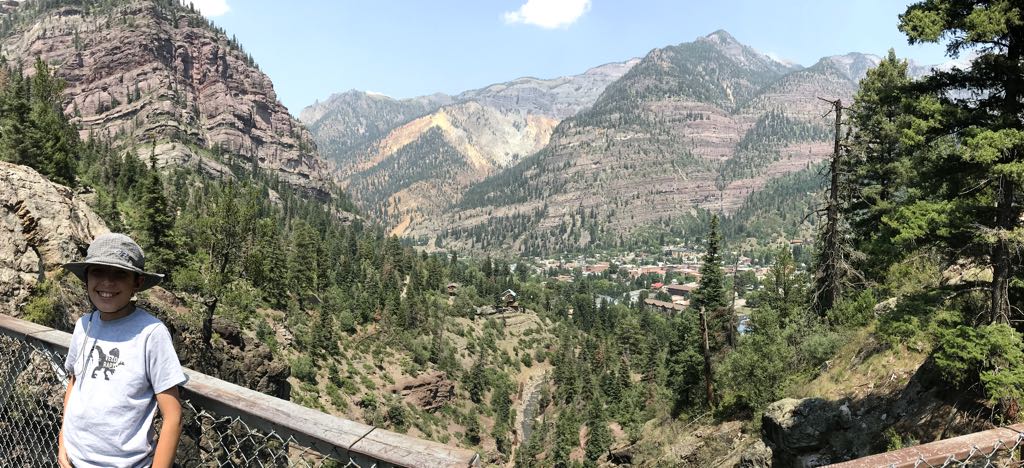
|
| Ute Indian Museum
|
|
My daughter was fascinated with the artwork on one of the brochures we picked up back in Silverton.
That brochure was about the Ute Indian Museum, and the art was Ute Indian art drawn on cattle hide.
Because of this, she wanted to see this museum.
| Time | Event | Range Remaining |
|---|
| 2:29 pm | Depart Box Canyon | 148 |
| 3:17 pm | Arrive Ute Indian Museum | 128 |
Range/Distance ratio: 0.588
Conditions: Downhill, 86°F
We learned some fascinating things here.
The Ute were nomadic but generally called this region of southwest mountainous Colorado their homeland.
After driving through such beautiful landscapes, I can understand why they were so upset when
white man took over these lands and isolating them to smaller regions before ultimately driving them out in the 19th century.
|
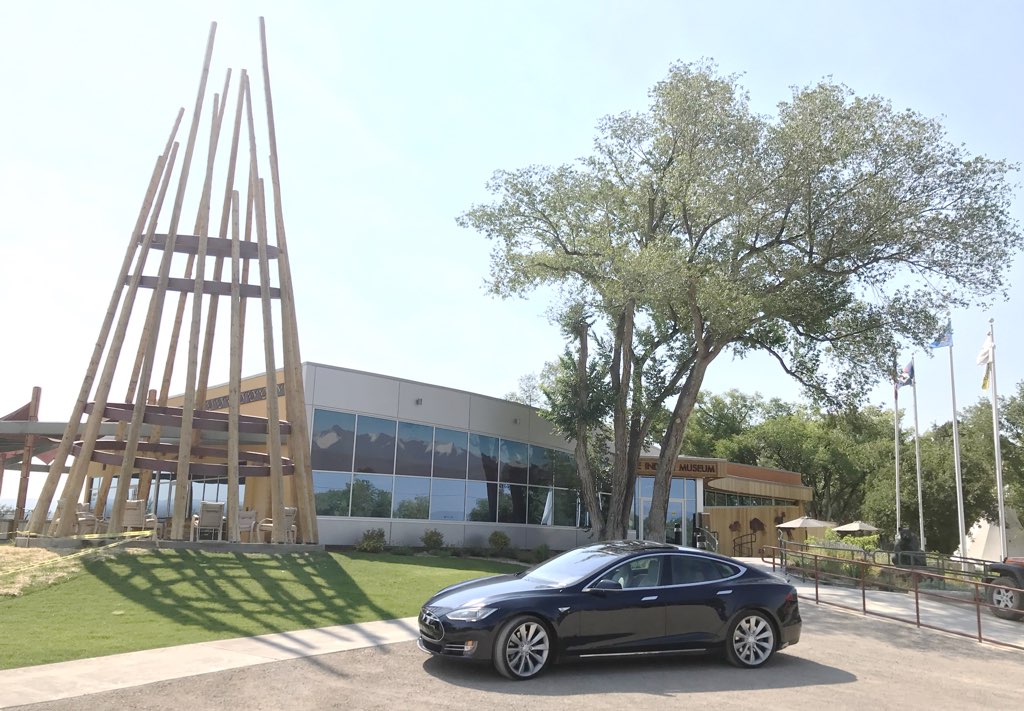
|
|
| Grand Junction
|
| Time | Event | Range Remaining |
|---|
| 4:00 pm | Depart Ute Indian Museum | 127 |
| 5:20 pm | Arrive Grand Vista Hotel | 59 |
Range/Distance ratio: 0.971
Conditions: Downhill, 100°F
The museum was our last stop until arriving at the
Grand Vista Hotel in Grand Junction,
which was a member of the Tesla Destination Network.
We completed today's journey on
one charge, a feat with which I've had plenty of practice, with plenty to spare.
We checked in, enjoyed the pool, then had
dinner at a local restaurant before
going to bed for the night.
Meanwhile the car charged at the hotel's Tesla charger.
Cost to Charge: $0
|
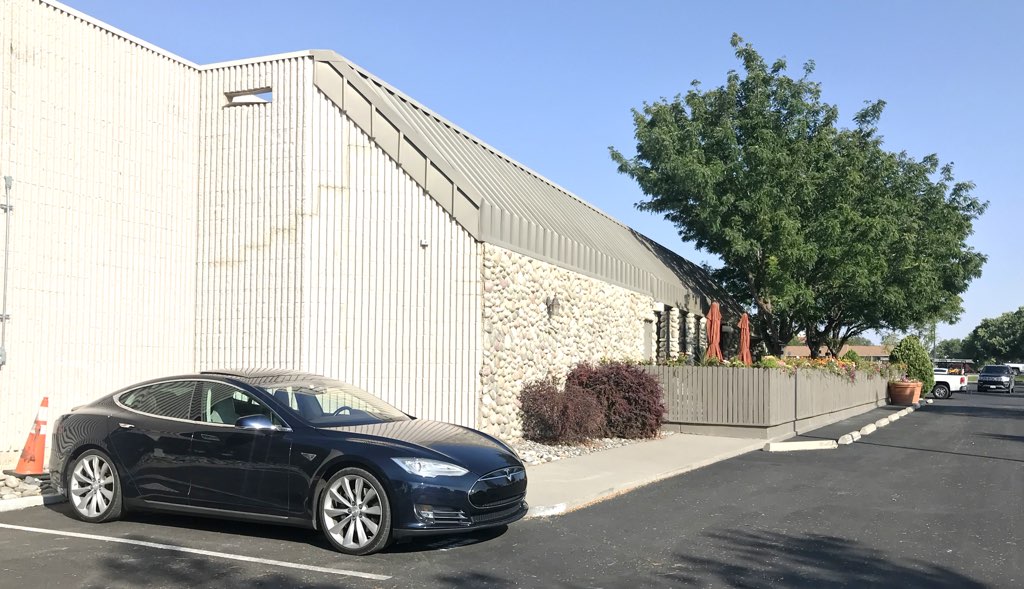
|
|
Dean E. Dauger holds a Ph. D. in physics from UCLA, where his group
created the first Mac cluster in 1998. Dr. Dauger is the award-winning
author in multiple American Institute of Physics' Software Contests and
co-authored the original, award-winning Kai's Power Tools
image-processing package for Adobe Photoshop.
After founding his company,
Dauger Research, Inc., its debut product,
Pooch, derived from Dr. Dauger's experience using clusters for his
physics research, was soon awarded as "most innovative" by IEEE Cluster
and continues to revolutionize parallel computing and clusters worldwide
with its patented technology.
|















